
Findings from the phase 3 INTRIGUE trial highlighted improved median progression-free survival in patients with KIT exon–mutated gastrointestinal stromal tumors compared with sunitinib.

Your AI-Trained Oncology Knowledge Connection!

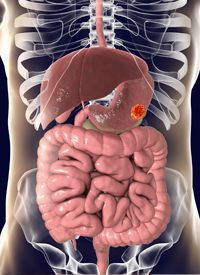

Updated Findings Continue to Support Frontline Nivolumab and Chemo in Certain Gastrointestinal Cancers

Nivolumab/Ipilimumab or Chemo Yields Long-Lasting Survival Benefit in Esophageal Cancer

Findings from the phase 3 INTRIGUE trial highlighted improved median progression-free survival in patients with KIT exon–mutated gastrointestinal stromal tumors compared with sunitinib.

Positive topline data from the phase 2b HERIZON-BTC-01 trial indicate zanidatamab may improve outcomes for patients with HER2-amplified and expressing biliary tract cancers.

Future research into the management of unresectable hepatocellular carcinoma may involve combining local therapies with checkpoint inhibitors like durvalumab and tremelimumab, according to Ghassan K. Abou-Alda, MD.

Patients with unresectable hepatocellular carcinoma who have recurrent disease following surgery or locally advanced diseases who will likely progress on local therapy may have an opportunity to benefit from tremelimumab and durvalumab following its FDA approval, according to Ghassan K. Abou-Alfa, MD.

Ghassan K. Abou-Alfa, MD, discusses the importance of improving access to novel therapies and combinations for patients with hepatocellular carcinoma across the world.

Ghassan K. Abou-Alfa, MD, spoke about the recent approval of tremelimumab plus durvalumab for patients with unresectable hepatocellular carcinoma, based on results from the phase 3 HIMALAYA trial.
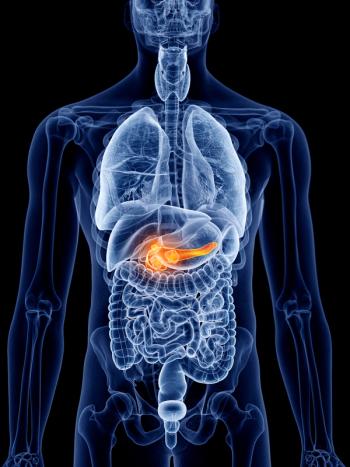
Patients with gastroenteropancreatic neuroendocrine tumors may benefit from treatment with radionucleotide therapeutic 177Lu-edotreotide, which received fast track designation from the FDA.

Results from a randomized controlled trial highlighted that the TissueCypher Barrett’s Esophagus Test heightened accuracy for assessing progression risk in high-grade dysplasia and esophageal adenocarcinoma among patients with Barrett’s esophagus.

Results from the phase 2 IMMUCHEC trial indicated that tremelimumab with or without durvalumab did not meet the primary end point of improved objective response rate vs chemotherapy in patients with treatment-naïve biliary tract cancer.
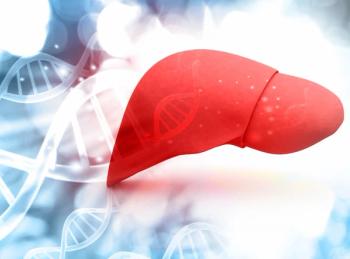
The FDA has granted orphan drug designation to second-line GNS561 following the completion of a phase 1/2a trial evaluating the novel PPT1 inhibitor in liver cancer and cholangiocarcinoma.

Findings from the phase 1/2 ReFocus study highlighted that RLY-4008 is a potentially transformative agent for the treatment of FGFR inhibitor–naïve, FGFR-mutant cholangiocarcinoma.

Long-term follow-up of the phase 2 DESTINY-Gastric02 study revealed fam-trastuzumab deruxtecan-nxki continues to show promise in locally advanced or metastatic HER2-positive gastric or gastroesophageal junction adenocarcinoma.

Patients with locally advanced or metastatic biliary tract cancer can now receive treatment with durvalumab plus gemcitabine following the combination’s approval by the FDA.

“...we don’t focus on survivorship enough. It’s important to understand the other factors involved in surviving besides just a treatment.”
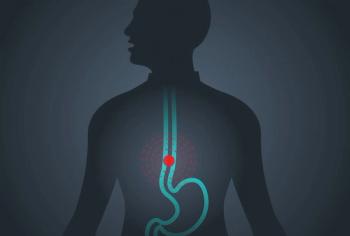
Patients with ERBB2-positive esophagogastric adenocarcinoma appeared to experience improved efficacy following treatment with a combination of trastuzumab and nivolumab plus leucovorin, fluorouracil, and oxaliplatin vs historical data.

Stacy Stein, MD, and co-investigators, research omalizumab to treat oxaliplatin hypersensitivity reactions for patients with gastrointestinal cancers.

The FDA has delayed the decision to approve tislelizumab monotherapy for patients with advanced or metastatic esophageal squamous cell carcinoma following prior systemic therapy, due to COVID-19 travel restrictions.

Howard A. Burris, MD, highlighted previous findings of the phase 3 TOPAZ-1 trial assessing durvalumab plus gemcitabine and cisplatin vs placebo plus gemcitabine and cisplatin in advanced biliary tract cancer and patient-reported outcomes data that were presented at 2022 ASCO.

In this month's Letter to the Readers, ONCOLOGY co-editor-in-chief Howard S. Hochster, MD, discusses oxaliplatin hypersensitivity reaction in gastrointestinal cancer.

The phase 3 RATIONALE 306 trial showed improved overall survival for patients receiving tislelizumab plus chemotherapy vs placebo and chemotherapy for unresectable, locally advanced or metastatic esophageal squamous cell carcinoma regardless of PD-L1 status.

Results from the phase 2 HERIZON study identified improved overall survival for patients treated with IMU-131 plus standard of care vs standard of care alone in advanced or metastatic gastric or gastroesophageal junction cancer.

Patients with gastrointestinal stromal tumors may benefit from 68GA-RM26 PET/CT vs 18F-FDG, according to findings presented at the 2022 Society of Nuclear Medicine & Molecular Imaging Annual Meeting.
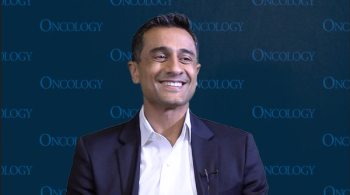
Shubham Pant, MD discusses key findings from a basket trial examining the use of erdafitinib in patients with gastrointestinal and other solid tumor malignancies.

A 100% clinical complete response rate was observed when patients with stage II/III mismatch repair-deficient locally advanced rectal cancer were treated with dostarlimab.

A Claudin18.2–specific CAR T-cell therapy has shown promise in the treatment of patients with heavily pretreated advanced gastric and pancreatic adenocarcinoma whose disease expresses the marker.